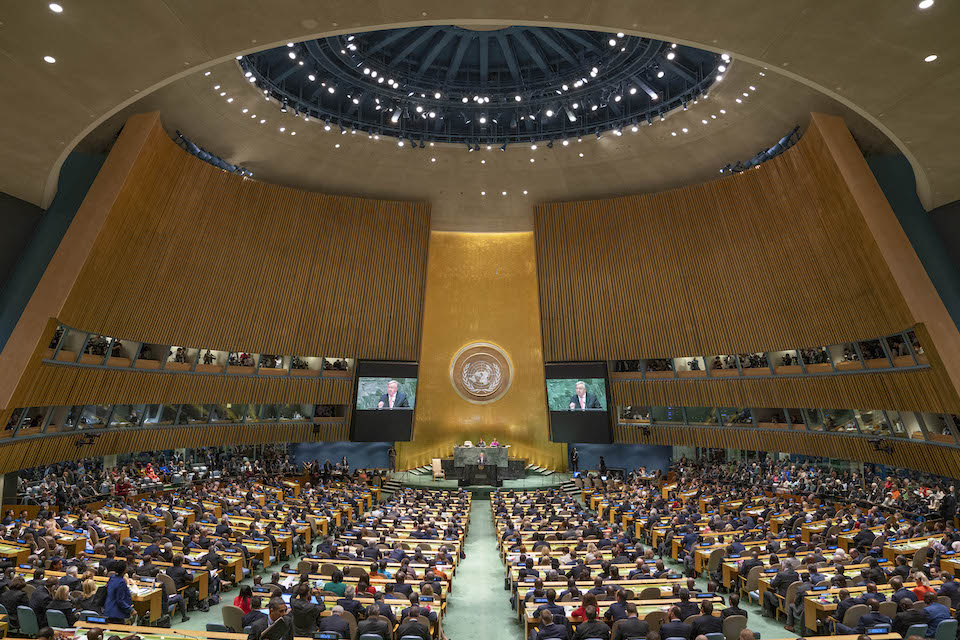Taken from my lectures as a Teachinig Fellow in International Law at Università degli Studi “Link”, these reflections highlight how State sovereignty and International Law are profoundly influenced by globalization, economic integration and digital technologies, raising fundamental questions about global governance, State autonomy and the adaptation of legal structures to new economic and technological realities.
Part I
The role played by States within the international community
In the tapestry of the international arena, the dual concept of “sovereignty and independence” emerges as a foundational dyad, defining the essence and the prerogatives that are inherent to the identity of modern States. These attributes have persisted with remarkable consistency across the centuries, asserting themselves with renewed vigor in the current era of globalization.
From the inception of institutionalized international law with the Peace of Westphalia in 1648, each State is recognized as sovereign – acknowledged as supreme and unanswerable to any superior authority – and is endowed with the exclusive jurisdiction over its territory, embodying the principle of non-interference in domestic affairs by other States. Within this framework, the individual is subsumed under the State, considered part of its sovereign domain.
The legal scaffolding of sovereignty in international law highlights the State’s inalienable right over its territory, establishing a singular authority over its inhabitants. This authority encompasses the exclusive right to govern and the capacity to enforce its will through coercive means if necessary, precluding any external encroachments on its autonomy.
Sovereignty, thus, is a principle that delineates identity and difference, straddling the realms of the transcendental and the empirical. It encapsulates the State’s autonomy, its inherent capacity to govern free from external subjugation, and positions the State as both subject and object within the domain of cognizance.
The essence of sovereignty is encapsulated in the ius imperii, the fundamental authority to command and govern, an authority that originates from the State itself and does not owe its legitimacy to any higher power. This original power establishes the geographical bounds of sovereignty, contained within the territorial limits where the State’s authority is exercised.
This construct of sovereignty fosters a relationship of coordination among States, a dynamic interplay replacing the hierarchical notions of subordination and superordination, reflecting a polycentric legal universe where the sovereignty of one State is balanced against that of another.
The evolution of the nation-State is rooted in the principle of sovereignty, an originality that confers upon States the legitimacy to wield authoritative powers independently. This sovereignty is manifested both internally, as the supreme authority over all domiciled entities, and externally, marking the state’s equal standing among its international peers.
The emergence of international and supranational entities has nuanced the concept of sovereignty, catalyzing a redefinition of State powers and their domains of influence. This recalibration acknowledges that certain communal interests are better served beyond the confines of national boundaries.
The acknowledgment and respect for State sovereignty remain pivotal in the ethos of the international community. The principle of effectiveness underscores the State’s presence and authority within the international milieu, predicated on its tangible establishment and dissolution.
The contemporary discourse on sovereignty navigates the tensions between the vertical legitimacy and horizontal legality, reflecting on Hegel’s dialectic of the universal and the particular. This interplay underscores the dual nature of sovereignty as both a transcendental order and a contractual horizontal pact among equals.
The narrative of sovereignty and its evolution reflects a dynamic shift towards recognizing the importance of a public international organization capable of legislating and enforcing global norms. This shift, exemplified by the establishment of the League of Nations and the UN, marks a transition from the traditional paradigms of sovereign power towards a more integrated and cooperative international order.
In conclusion, the dialogue on sovereignty and its transformation in the context of globalization and supranational governance underscores the intricate balance between maintaining State autonomy and embracing the collective governance of shared global challenges. This ongoing evolution reflects the adaptive nature of sovereignty in the face of changing international dynamics, heralding new forms of governance that navigate between the traditional sovereign State and emerging global governance structures.

